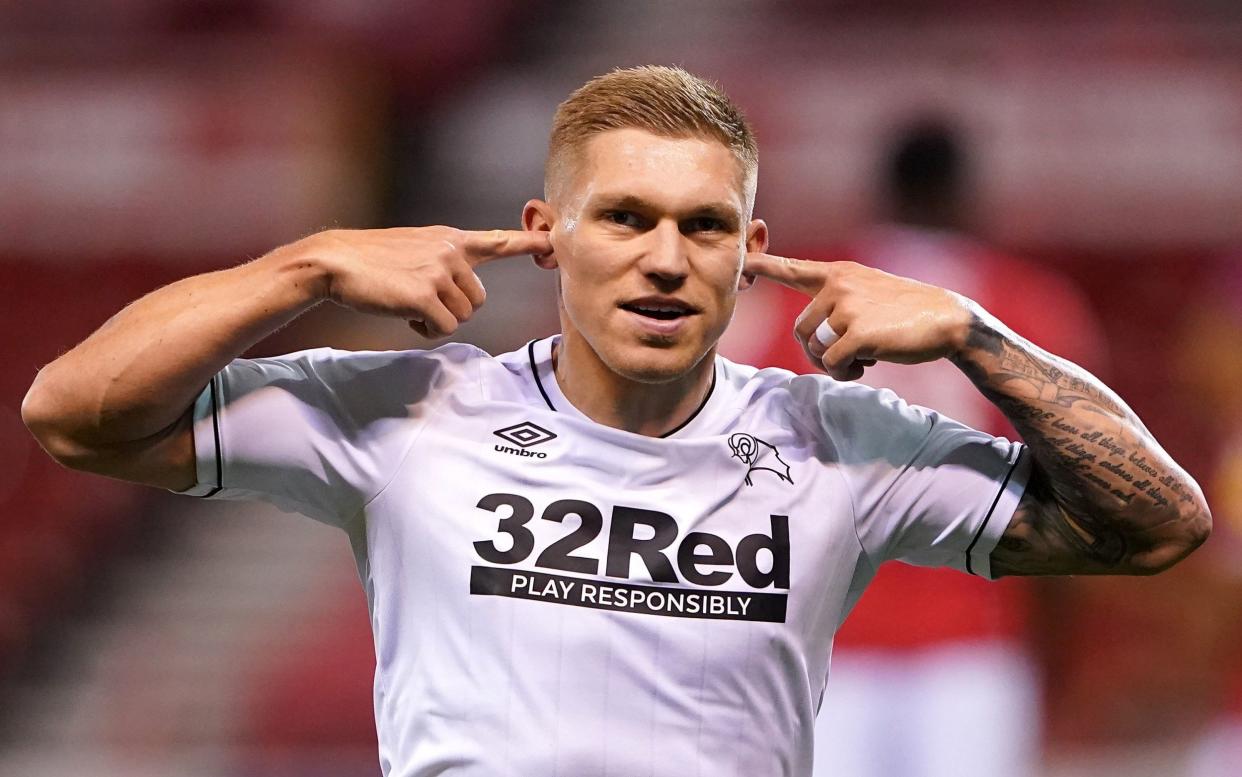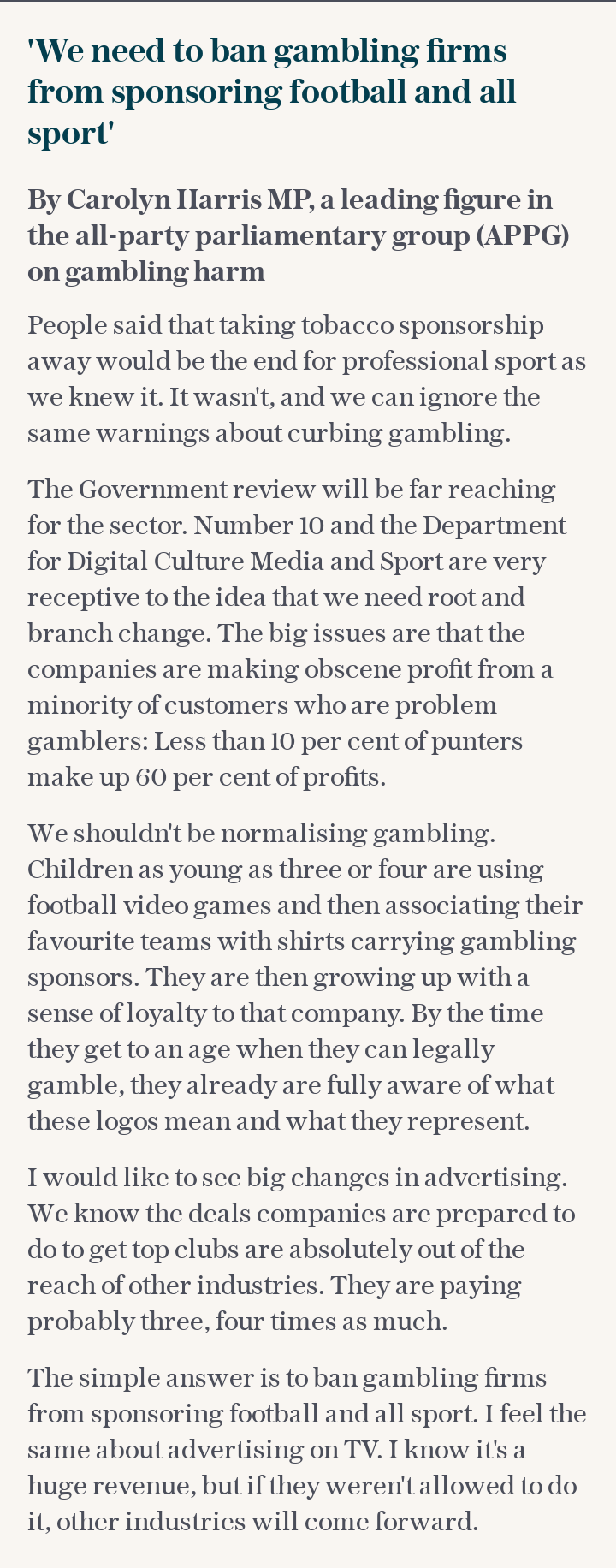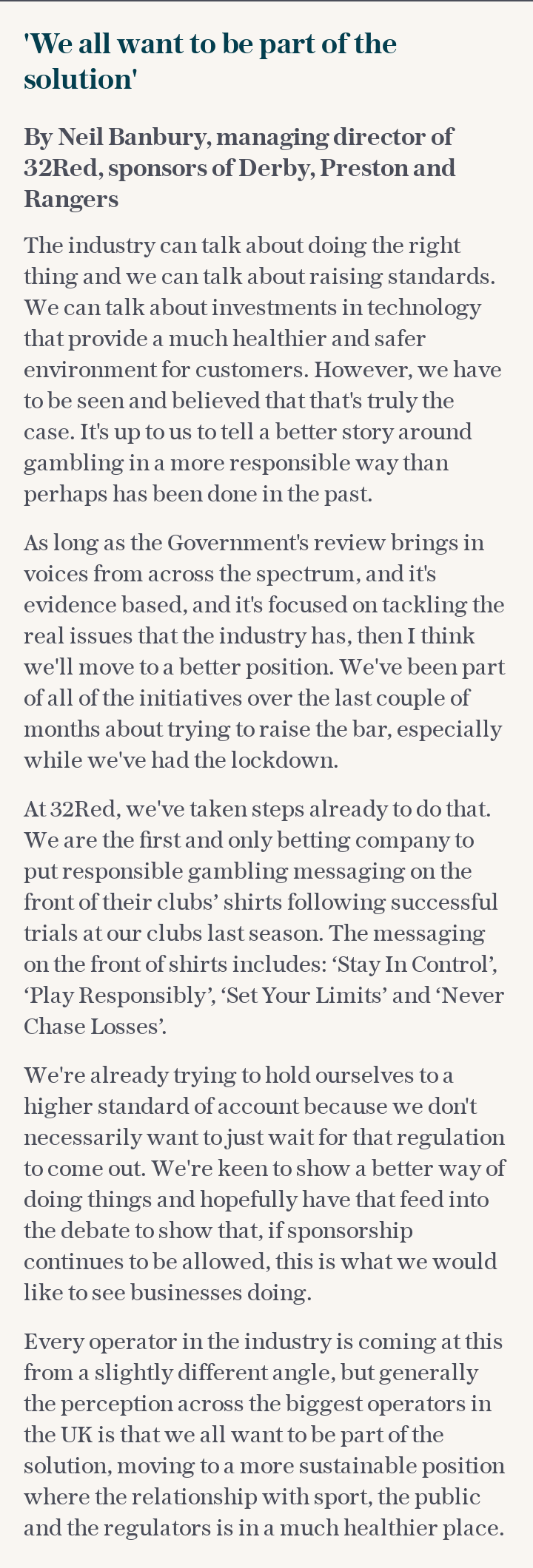EFL declares it will fight for revenue from gambling firms as Government bids to crackdown on betting sponsorship

The cash-strapped English Football League has vowed to fight tooth and nail to protect "vital" sponsorship revenue from gambling firms as the Government prepares to launch the biggest overhaul in legislation in 15 years.
The Daily Telegraph disclosed 10 days' ago how ministers are under pressure to ban the proliferation of betting firm sponsors on football shirts and are also facing calls for a potential levy on bets to offset losses for struggling sports.
However, the EFL - in which 16 out of the 24 Championship sides had betting partners last season - said severe new measures to cut income streams would have devastating consequences while clubs are already under unprecedented financial pressure.
"The inconsistency is frustrating and perplexing," the league said, citing the £500 million the clubs raise in taxes. "Our approach in respect of gambling sponsorship is under constant review and the league will also contribute to any call for evidence by the Government as we seek to protect an important and vital income stream for our membership in a time of financial crisis.”
The outburst comes just days after the competition asked the Government to allow its clubs to defer tens of millions of pounds of tax payments until the ban on crowds attending games is lifted.
The EFL suggested the forthcoming gambling review at Whitehall could compound clubs' problems. The betting industry, which spends billions on football and horse racing alone, is facing a fight to prove the current status quo is not damaging society.

Most crucial of all for the EFL is to avoid a ban on shirt sponsorship.
"The association between football and the gambling sector is long-standing, with a collaborative, evidence-based approach to preventing gambling harms of much greater benefit than that of a blanket ban of any kind," the league said in a statement.
Labour MP Carolyn Harris, a leading figure in the all-party parliamentary group (APPG) on gambling harm, previously told Telegraph Sport she will push for tighter laws comparable to the ban on tobacco advertising.
"The evidence is there to show that advertising in sports, primarily football, is causing a problem for a generation of children coming up," she said.
Whitehall sources insist the Government is "open-minded" about how it should bring the 2005 Gambling Act into the digital age. However, sporting figures, campaigners and peers in the House of Lords have raised concerns that legislation introduced under Tony Blair liberalised the sector too far.
In response, the EFL said it has been working with Sky Bet "to promote responsible gambling, with players from all three divisions wearing sleeve badges to encourage supporters to consider how they gamble and 70 per cent of the sponsor's matchday inventory dedicated to safer gambling messaging”.
"With over £40 million a season paid by the sector to the League and its clubs, the significant contribution betting companies make to the ongoing financial sustainability of professional football at all levels is as important now as it has ever been, particularly given the ongoing impact of the Covid-19 pandemic which is leaving many of our clubs living on a financial knife edge," the league added.

"At the same time our members, who contribute almost £500 million annually to the Exchequer, has its core income stream of ticket sales turned off indefinitely without any indication of a roadmap that will allow the safe return of supporters to stadiums, despite other sectors being able to welcome people through their doors. They are also continuing to meet their financial obligations in the absence of similar levels of support being afforded to other industries. The inconsistency is frustrating and perplexing.”
The Department for Digital, Culture, Media and Sport is leading the initial review, which is set to be launched within weeks. Prime Minister Boris Johnson would eventually play a key role, having pledged to reform the act in his manifesto.
A sporting sector already reeling from £2 billion losses caused by Covid-19 will have been further unsettled by a recent Lords' Select Committee paper titled "Gambling Harm-Time for Action". "Gambling operators should no longer be allowed to advertise on the shirts of sports teams or any other part of their kit," the committee ruled in a long list of recommendations. The Lords went on to call for "no gambling advertising in or near any sports grounds or sports venues, including sports programmes". Bet-to-view systems, like the one which prompted a furore in the FA Cup, would also be outlawed for all sport bar horse and greyhound racing.
Research by GambleAware estimates up to 1.4 million people have been problem gamblers, yet sponsorship in football is more prevalent than ever.
Half of Premier League teams and 16 out of the 24 Championship sides had betting partners last season. Neil Banbury, managing director of 32Red which sponsors Derby, Preston and Rangers, recognised the sector has a responsibility to "hold itself to a higher standard of account". The company was the first betting firm to put so-called responsible gambling messaging on the front of their clubs’ shirts.


